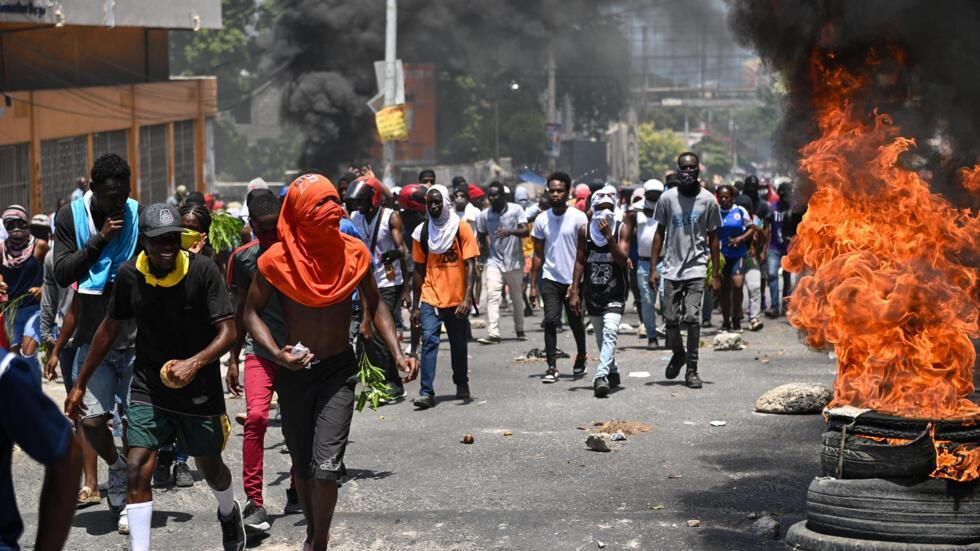
On Monday night, Irfaan Ali, the current president of the Caribbean Community (CARICOM), announced that the unelected, US-backed Haitian Prime Minister Ariel Henry will resign after the establishment of a transitional presidential council and the appointment of an interim prime minister.
“We will create a transitional presidential council composed of seven voting members and two observers,” Ali said after a meeting held in Kingston (Jamaica). Henry did not attend this high-level meeting as he has been in Puerto Rico for a week unable to return to Haiti.
“We are pleased to announce the commitment to a transitional governance agreement that paves the way for a peaceful transition of power, continuity of governance, and a short-term security action plan and route towards free and fair elections,” Ali said, adding that the presidential council will appoint an interim prime minister and a council of ministers.
Present at the Kingston meeting were Prime Minister’s Ralph Gonsalves (Saint Vincent and the Grenadines), Mia Mottley (Barbados), and Philip Davis (The Bahamas); U.S. Secretary of State Antony Blinken, Mexican Foreign Affairs Minister Alicia Barcena, French Development Minister Chrysoula Zacharopoulou; and the United Nations High Representative for the Least Developed Countries Earle Courtenay Rattray.
The seven voting members will represent the following groups: December 21 Agreement, RED/EDE, Lavalas, Montana, Pitit Dessalines, and the private sector. Representatives of civil society and the religious community will be observers. This Council will have presidential powers during a transition period.
Besides ensuring internal governance, the council will collaborate with the international community to accelerate the deployment of a Multinational Security Support Mission to Haiti, which will have US$400 million funded by the U.S.
The increase in violence in Haiti began on February 28 after it was revealed that Henry had committed to holding elections before the end of August 2025. According to a 2022 agreement, however, he should have relinquished power on February 7.
On Tuesday, the International Organization for Migration (IOM) reported that 362,000 people have been forcibly displaced in Haiti.
According to the IOM, more than half are children, and the total number has increased by 15 percent since the beginning of the year.
The international organization assures that forced displacements in Haiti worsen the humanitarian situation in the Caribbean country, where violence and kidnappings persist and overshadow the lives of citizens. “More than half of the people currently displaced in the country were displaced in 2023,” the agency reported.
In December 2023 alone – the IOM said – more than 310,000 individuals had to leave their homes, and these figures illustrate the steadily worsening humanitarian and security situation in the country, particularly in Port-au-Prince.
Thousands of people had to leave their homes to seek refuge with relatives, in shelters or public spaces such as squares, churches and gymnasiums.
Four million people face “acute food insecurity” and one million of them are one step away from famine, the U.N. food agency’s director in the conflict-wracked Caribbean nation said Tuesday.
There were signs in the capital, Port-au-Prince, of an improvement in the security situation on Tuesday, with the streets quiet and no attacks on government offices or police stations reported.
The main CPS cargo port had reopened, local news outlet Le Nouvelliste reported. The capital’s airport has not resumed operations, but armed men who had taken control of it were no longer present.
Meanwhile, some fuel from the Varreux facility near the port had been allowed out.
However, Radio Television Caraibes, one of Haiti’s oldest and largest TV stations, said it had to leave its headquarters in central Port-au-Prince, citing the insecurity.
In another political turn, a senior Kenyan diplomatic official said that plans to deploy its police officers to Haiti to lead a U.N.-backed military occupation were on pause pending “a clear indication” that a new interim government was in place.